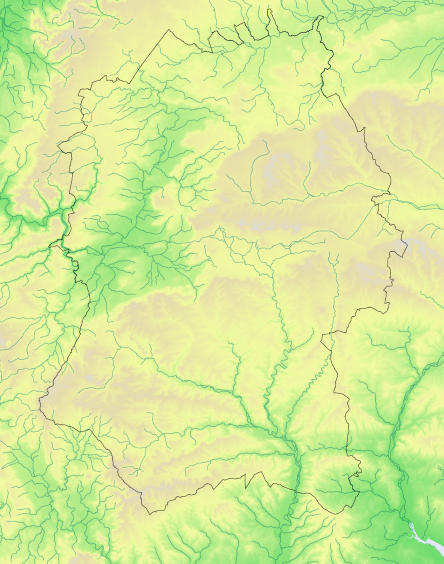Atlas species lists
- Breeding distribution 1995–2000
- Summer abundance 1995–2000
- Winter distribution 1995–2000
- Winter abundance 1995–2000
- Breeding distribution 2007–2012
- Summer abundance 2007–2012
- Winter distribution 2007–2012
- Winter abundance 2007–2012
- Breeding distribution change
- Summer abundance change
- Winter distribution change
- Winter abundance change
More Teal maps
- Breeding distribution 1995–2000
- Summer abundance 1995–2000
- Winter distribution 1995–2000
- Winter abundance 1995–2000
- Breeding distribution 2007–2012
- Summer abundance 2007–2012
- Winter distribution 2007–2012
- Winter abundance 2007–2012
- Breeding distribution change
- Summer abundance change
- Winter distribution change
- Winter abundance change
Map explanation
This map shows the summer relative abundance of the species in Wiltshire, based on variation from the average, as revealed by the fieldwork for Birds of Wiltshire (Wiltshire Ornithological Society 2007).
Key
Relative to average
Nos tetrads

>50% fewer
0
0%

25-50% fewer
0
0%

Average +/- 25%
0
0%

25-100% more
0
0%

>100% more
0
0%
Total
0
0%
Teals are a mainly migratory species, breeding right across northern Eurasia, from Iceland to the north Pacific and wintering in Western Europe, the Mediterranean, parts of sub-Saharan Africa, the Middle East and southern and eastern Asia. Great Britain is on the southern fringe of the breeding range and its breeding population is accordingly relatively small. In winter however it does have a substantial and increasing immigrant population (with variation depending on the severity of winters), concentrated mainly around major river valleys and coastal areas, particularly estuaries.
A few individuals are found in Wiltshire every summer. There were occasional reports of breeding at unspecified locations from the mid 19th century onwards, although the first documented record of breeding did not occur until 1936. Breeding was recorded in twelve other years between then and 1976, but there have been no further confirmed records since that year, despite a steady increase in breeding season numbers during the 1980s and 1990s.
Birds of Wiltshire recorded the species as present in summer in 12 tetrads but with no records of even probable breeding attempts. WTA2 recorded presence in 24 tetrads, with no confirmed breeding though with indications of probable breeding attempts at Cotswold Water Park (CWP), Coate Water and near Ramsbury.
Wiltshire is not a major wintering area for Teals. Birds of Wiltshire estimated the likely average numbers at between 1500 and 2000 although in mild winters totals can be considerably higher: in January 2003 one CWP site alone held a flock of 2200 and the county total that month was probably approaching 4000. The species is becoming more widespread in winter: Birds of Wiltshire recorded it in eighteen 10km squares; WTA2 found it in 34 Wiltshire squares.
References
The following references are used throughout these species accounts, in the abbreviated form given in quotation marks:
“1968-72 Breeding Atlas” – Sharrack, J.T.R. 1976: The Atlas of Breeding Birds in Britain and Ireland. T. & A. Poyser
“1981-84 Winter Atlas” – Lack, P.C. 1986: The Atlas of Wintering Birds in Britain and Ireland. T. & A. Poyser
“1988-91 Breeding Atlas” – Gibbons, D.W., Reid, J.B. & Chapman, R.A. 1993: The New Atlas of Breeding Birds in Britain and Ireland 1988-91. T. & A. Poyser
“Birds of Wiltshire” – Ferguson-Lees, I.J. et al. 2007 : Birds of Wiltshire, published by the tetrad atlas group of the Wiltshire Ornithological Society after mapping fieldwork 1995-2000. Wiltshire Ornithological Society.
“Bird Atlas 2007-2011” – Balmer, D.E., Gillings, S., Caffrey, B.J., Swann, R.L., Downie, I.S. and Fuller, R.J. 2013: Bird Atlas 2007-2011: the Breeding and Wintering Birds of Britain and Ireland
“WTA2” – ("Wiltshire Tetrad Atlas 2 ") the present electronic publication, bringing together the Wiltshire data from “Birds of Wiltshire” and “Bird Atlas 2007-11”, together with data from further fieldwork carried out in 2011 and 2012.
"Hobby" - the annual bird report of the Wiltshire Ornithological Society.

